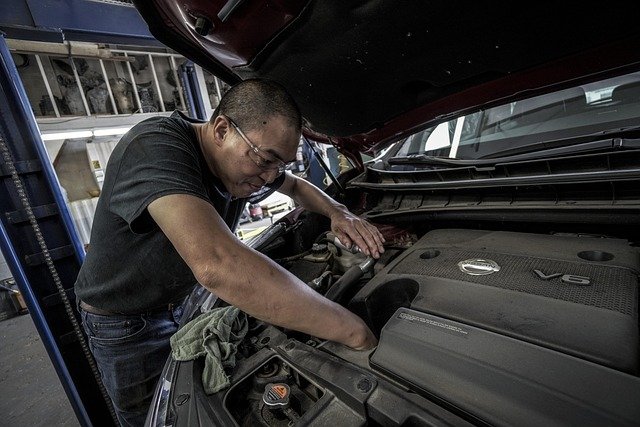What to Know About Engine Repair Training for Lifelong Skills
As interest grows in practical, hands-on skills that can lead to greater independence and self-sufficiency, many are looking into what engine repair training has to offer. From foundational know-how to more advanced insights, the range of topics covered in this overview touches on relevant discussions for those exploring lifelong learning or late-in-life career shifts. This guide brings together a mix of previously published entries that explore everything from surprising facts about machinery to engaging, lighthearted takes on learning technical skills.

What Does Certified Mechanic Training Entail?
Certified mechanic training is a comprehensive program designed to equip individuals with the knowledge and skills necessary to diagnose, repair, and maintain various types of engines. These programs typically cover a wide range of topics, including engine theory, electrical systems, fuel systems, and computerized diagnostics. Students learn about both gasoline and diesel engines, as well as hybrid and electric vehicle technologies.
Most certified mechanic training programs combine classroom instruction with hands-on practice in a workshop setting. This allows students to apply their theoretical knowledge to real-world scenarios, developing the practical skills needed to succeed in the field. The duration of these programs can vary, ranging from several months to two years, depending on the level of certification and the institution offering the training.
How Can You Obtain Automotive Repair Certification?
Automotive repair certification is a crucial step for those looking to establish themselves as professional mechanics. The process typically involves completing an accredited training program and passing a series of exams to demonstrate proficiency in various aspects of automotive repair. In the United States, the National Institute for Automotive Service Excellence (ASE) is the primary organization that offers certifications for automotive professionals.
To obtain ASE certification, candidates must have at least two years of relevant work experience in addition to passing the required exams. There are multiple certification levels and specializations available, allowing mechanics to demonstrate expertise in specific areas such as engine repair, brakes, suspension, and electrical systems. Many employers prefer or require ASE certification, making it a valuable credential for career advancement in the automotive industry.
What Are the Benefits of Hands-On Engine Repair Classes?
Hands-on engine repair classes provide an immersive learning experience that goes beyond textbook knowledge. These classes offer students the opportunity to work directly with engines, tools, and diagnostic equipment, developing the practical skills essential for success in the field. By engaging in hands-on learning, students can:
-
Gain confidence in their ability to diagnose and repair engine issues
-
Develop problem-solving skills through real-world scenarios
-
Learn proper tool usage and safety procedures
-
Network with instructors and peers in the industry
-
Build a portfolio of completed projects to showcase their skills to potential employers
Many technical schools, community colleges, and vocational training centers offer hands-on engine repair classes as part of their automotive programs. These classes often use a combination of classroom instruction and workshop sessions to provide a well-rounded education in engine repair.
What Career Opportunities Exist for Diesel Technician Programs Graduates?
Diesel technician programs offer specialized training for those interested in working with diesel engines, which are commonly found in trucks, buses, construction equipment, and marine vessels. Graduates of these programs can pursue a variety of career opportunities, including:
-
Diesel Mechanic: Repairing and maintaining diesel engines in various types of vehicles and equipment
-
Fleet Maintenance Technician: Managing the maintenance and repair of commercial vehicle fleets
-
Marine Diesel Technician: Specializing in the repair of diesel engines used in boats and ships
-
Power Generation Technician: Working with diesel generators used for backup power systems
-
Heavy Equipment Technician: Focusing on the repair of diesel engines in construction and mining equipment
| Program | Provider | Key Features | Estimated Duration |
|---|---|---|---|
| Diesel Technology | Universal Technical Institute (UTI) | Hands-on training, manufacturer-specific courses | 45 weeks |
| Diesel & Industrial Technology | Lincoln Tech | ASE test preparation, career placement assistance | 13-20 months |
| Diesel Technology Associate Degree | Wyoming Technical Institute (WyoTech) | Advanced diesel training, business management courses | 9 months |
| Diesel Equipment Technology | Nashville Auto Diesel College (NADC) | Specialized training in various diesel systems | 12-18 months |
Prices, rates, or cost estimates mentioned in this article are based on the latest available information but may change over time. Independent research is advised before making financial decisions.
The demand for skilled diesel technicians is expected to remain strong in the coming years, driven by the widespread use of diesel engines in transportation and industry. Graduates of diesel technician programs often find that their skills are highly sought after, leading to stable and well-paying career opportunities.
Engine repair training, whether focused on general automotive repair or specialized diesel technology, provides a solid foundation for a rewarding career in the automotive industry. By investing in comprehensive training and obtaining relevant certifications, individuals can develop lifelong skills that will serve them well in various professional settings. As technology continues to evolve, ongoing education and hands-on experience will be crucial for staying current in this dynamic field.




